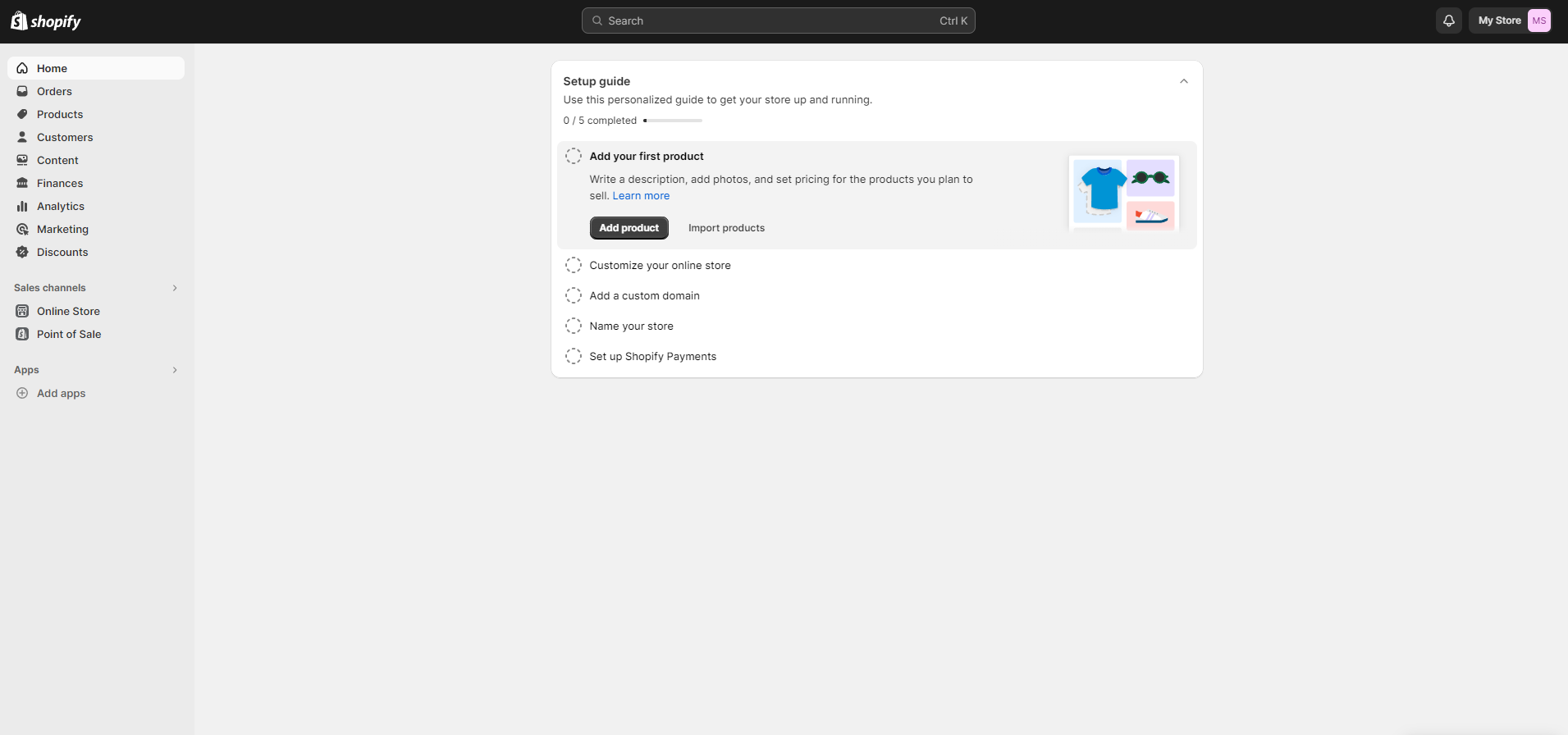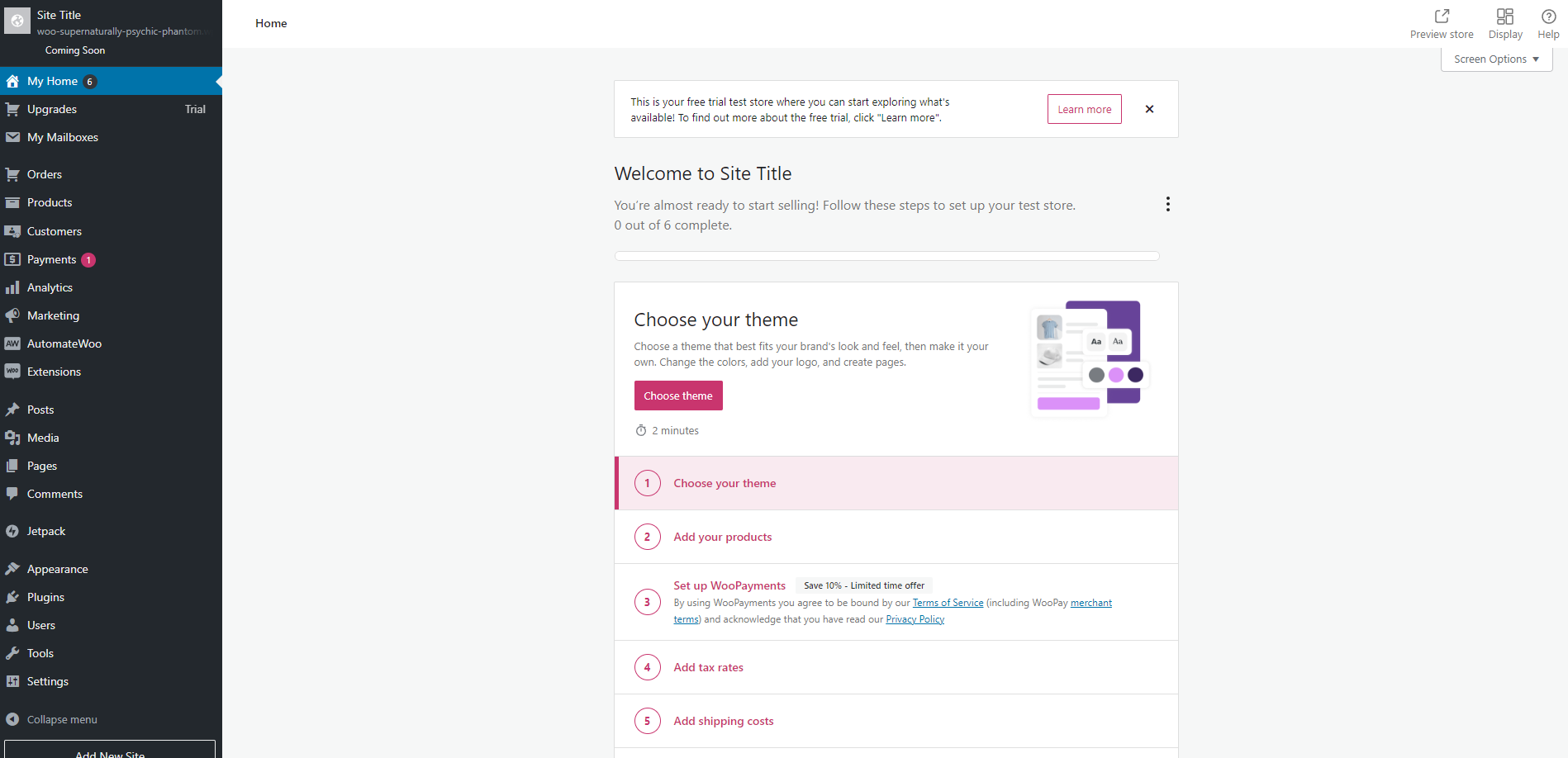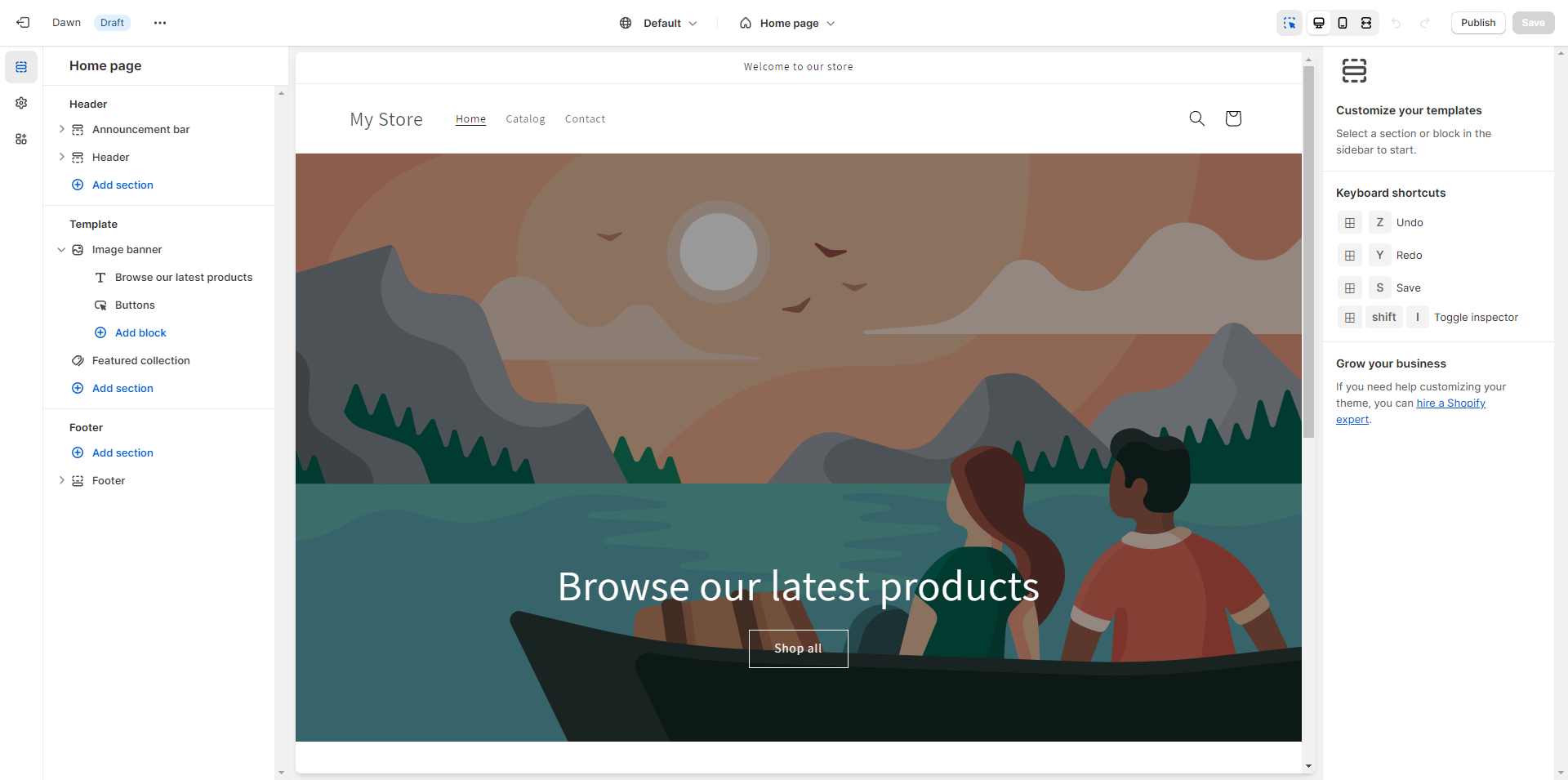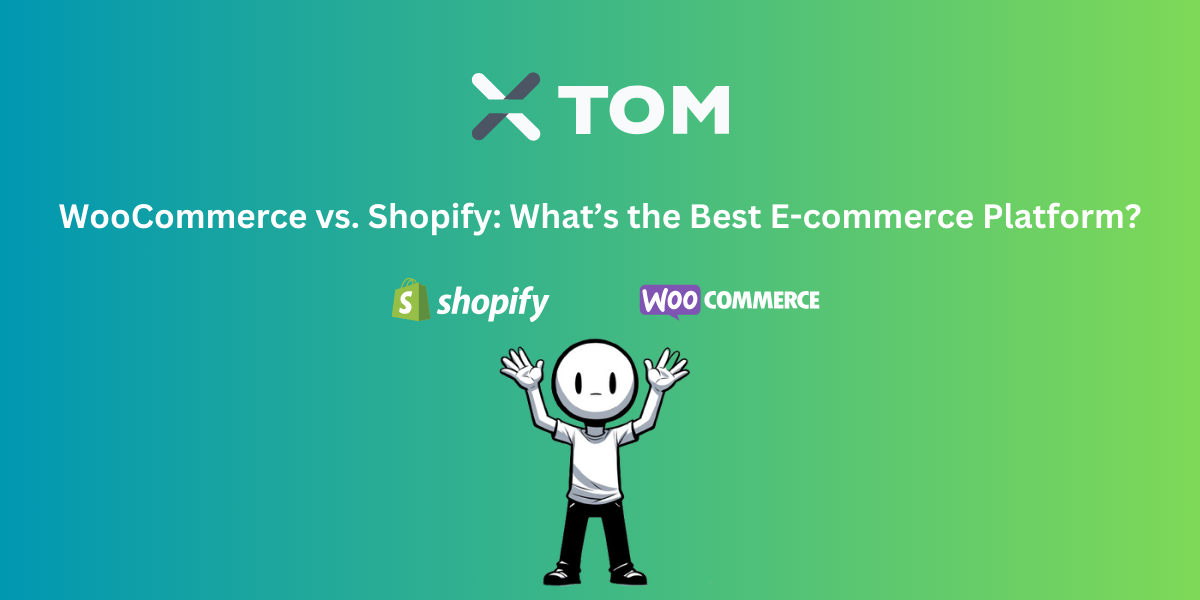When it comes to setting up an online store, two names often dominate the conversation: WooCommerce and Shopify.
They're the most mature options available on the market. They've both had plenty of time to improve their product and find clear product/market fits.
Sure, there are alternatives like BigCommerce and Magento, but businesses simply aren't using them as much as Shopify or WooCommerce--and there's a reason for that.
But there's also a reason you might pick Shopify over WooCommerce, or WooCommerce over Shopify. They have their own respective pros and cons, and differences.
That said, in this article, we'll dive into the key differences between WooCommerce and Shopify, helping you make an informed decision on what's the right e-commerce platform for your business.
Let's get started:
Ease of use
Shopify
Known for its user-friendliness, Shopify offers a straightforward setup with a drag-and-drop interface, making it ideal for beginners or businesses that prefer a hassle-free approach.
Pretty much anyone could figure out how to use Shopify:

WooCommerce
As a WordPress plugin, WooCommerce requires a bit more technical know-how, especially for customization. It's best suited for those already familiar with WordPress or willing to invest time in learning.
But over all, it's not too incredibly difficult to use:

Customization and flexibility
Shopify
It offers a range of themes and apps for customization. However, there are limitations due to its proprietary nature. You'll also find just about everything in the Shopify ecosystem costs money.
Generally speaking, a Shopify store and checkout is very customizable, though:

WooCommerce
Being open-source, WooCommerce allows for extensive customization. You have complete control over your store's look, feel, and functionality, but this might require technical skills or hiring a developer.
WooCommerce does include some drag-and-drop editing functionality itself, too:

Pricing and expenses
Shopify
Operates on a subscription model with different tiers, each offering more features.
Additional costs can arise from premium themes, apps, and transaction fees (if not using Shopify Payments).
It starts at $39 USD per month and works its way up to $399 USD per month and beyond.
WooCommerce
The WooCommerce plugin itself is free, but you'll need to pay for hosting, themes, plugins, and potentially developer fees. While it can be cost-effective, costs can accumulate depending on your choices.
It's important to pick the right host for your e-commerce brand. Downtime means lost money, and you want to find the right ratio of pricing and reliability.
That's where xTom comes in. xTom provides reliable yet affordable cloud infrastructure in many forms, such as:
So, if you're looking for a cost effective and reliable WooCommerce host (big or small), we certainly fit the bill.
If you're just starting out and don't have a lot of money to spare, you can get a shared hosting plan from us for less than $22 USD per year. An entire year's worth of hosting for less than the price of one month of Shopify.
Our shared hosting also includes an auto-installer. There's minimal effort required to get your WooCommerce site up and running ASAP.
That said, if you're somewhat established; but don't get thousands of visits per day, our V.PS brand offers you a great balance of additional power without all the extra costs of stepping up to a dedicated server.
Plus, it's pretty easy to install something like cPanel (what we use on our shared hosting) on a VPS or dedicated server. Then you'll hardly have to worry about any of the "tech stuff" and can focus solely on running your e-commerce brand instead.
Finally, if you just straight up aren't sure what you need, but you're interested in going with WooCommerce, just reach out to our sales department and we'll get you taken care of.
No need to stress about what the right hosting option is for your brand. We're professionals and would like to take that burden off your shoulders for you.
Payment processing and fees
Shopify
Offers its payment gateway, Shopify Payments, and supports various other payment gateways. However, using payment gateways other than Shopify Payments incurs additional fees.
This is probably my least favorite part about Shopify and really does drive in the factor that this is a centralized SaaS, and ultimately Shopify has control to do whatever they want to your store.
WooCommerce
Supports numerous payment gateways without additional fees; giving you more flexibility and potentially lower costs.
SEO and marketing
Shopify
Provides basic SEO features and integrations with marketing tools, but options can be limited compared to WooCommerce.
WooCommerce
Benefits from WordPress’s robust SEO capabilities, offering greater control over SEO elements. The vast array of plugins can significantly enhance your marketing efforts.
Scalability
Shopify
Handles scalability well, making it a good choice for stores that anticipate rapid growth. Its infrastructure can support increased traffic and sales without much hassle.
WooCommerce
Also scalable, but may require more technical management to ensure your hosting and infrastructure can handle growth, which is exactly why you would go with a reliable and seasoned hosting provider like us over at xTom.
Support and community
Shopify
Offers 24/7 support and has a large community. Users can access help via phone, email, or live chat.
Realistically, the main benefit of using Shopify is that you pay a premium to not have to deal with as many headaches as you would as self-hosting your own platform.
WooCommerce
While there's no direct support, there are many WordPress and WooCommerce communities that provide forums, guides, and third-party support options.
It may take a bit more effort (or hiring someone to manage it for you), but you have plenty of resources available to help you operate your WooCommerce website.
Final thoughts
The choice between WooCommerce and Shopify depends on your specific needs, technical skills, and business goals.
Shopify shines in user-friendliness and ease of use, ideal for those who want a straightforward, all-in-one solution.
WooCommerce, on the other hand, offers unparalleled customization and flexibility, suited for those who desire full control over their online store and are comfortable with a more hands-on approach.
It should also be noted: Shopify does not allow certain types of businesses, whereas you can host whatever type of business you want with WooCommerce.
Ultimately, both platforms are capable of launching and growing a successful e-commerce business–the right choice depends on the path you wish to take.
If you do decide to go the WooCommerce route, we would love for xTom to be your trusted hosting provider.
Please do feel free to reach out to us with any questions!
Thanks for reading.




